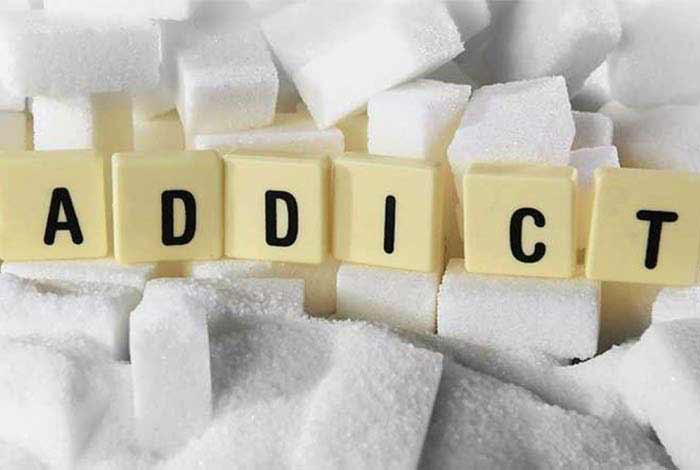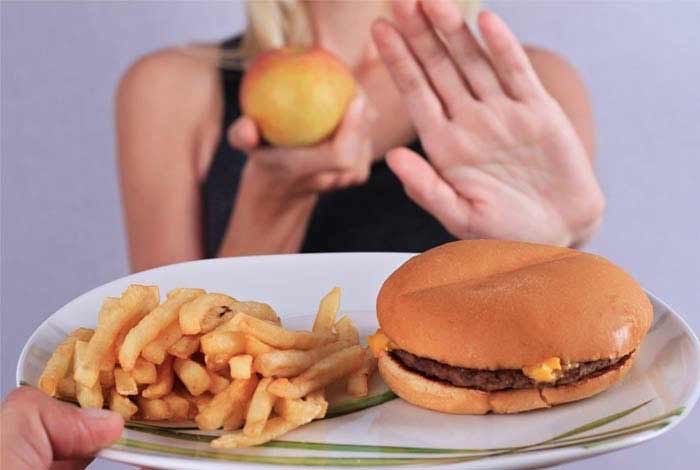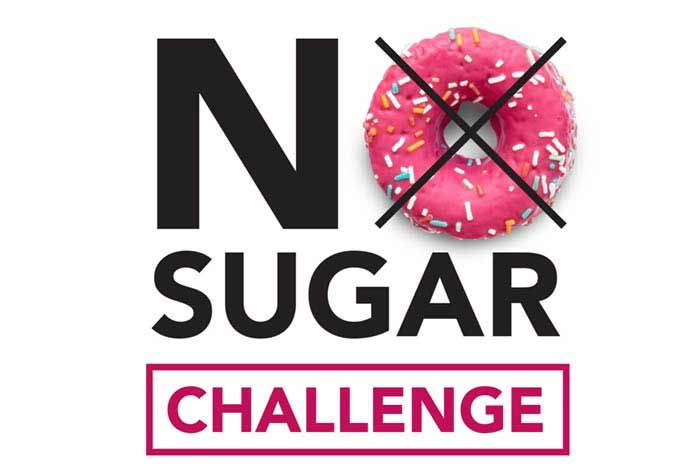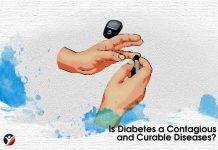
Sugar and depression are connected, have you ever heard about it? Let’s explore.
Are you the one with a sweet tooth? Do you find solace in chocolates, ice-creams and other sugary desserts? If yes, you will agree with the fact that sugar addiction is real. Sugar imparts an elated and euphoric feeling, boosting the mood tremendously.
As per the recent statistics, Americans consume nearly 66 pounds of added sugar every year, which is way more than the healthy recommendations. Undeniably, this paves way for health conditions like obesity, diabetes, PCOS, heart diseases and many more.
Well, while most people just relate sugar to causing physical implications, research has unveiled the fact that excess consumption of sugar has psychological implications as well, augmenting the risk for depression. No wonder, obesity, sugar addiction and mental depression are on the rise lately. [1]
But, what exactly does sugar do? Do you think it’s confined to cakes, pasta, bread, soda, candies and all other confectioneries?! Well, it is no so. These are just one of the variants of sugar, i.e., simple sugar. Simple sugar is the processed and refined type of sugar, which we all relish. It keeps us uplifted, but only for a while. In the long run, it leaves us feeling depressed and dejected.
The other variant of sugar is the complex sugar. It is a natural and unprocessed form of sugar, which is present in vegetables, fruits and grains. This is the healthier form of sugar, which actually acts as a fuel to the body in a better way and so, must be included in the diet.
Still not convinced to slash down the refined sugar from diet? Here are a few more research-based facts to understand what excess consumption of refined simple sugar does to your body.
1. Refined Carbs Cause Depression

As per a recent study published in the British Journal of Psychiatry, processed food has a strong link with depression. The study involved around 3500 participants, who were divided in two groups. One group consumed whole foods, rich in complex carbs, like fruits, fish and vegetables. The other group consumed highly processed food, including fried food, processed meat, sweetened desserts, high-fat dairy products and refined grains.
Five years later, the assessment revealed that people, who consumed processed foods, were more likely to develop depression as compared to those, who ate whole foods. So, if you want to keep the depression at bay, opt for whole foods and keep distance from processed sugary foods. [2]
2. Sugar Causes More Addiction Than Cocaine

If you are fond of sugary foods, you must be well aware of the addiction it causes. However, this addiction can be critically severe, surpassing some highly addictive drugs like cocaine. The so-called ‘sugar high’ is real and can make it impossible for you to quit sugar.
A recent study performed in rats stated that sugar consumption not just soothes your taste buds, but also stimulates the reward center of your brain. The horrifying fact is that the rewarding ability of sugar is much stronger than that of cocaine. In simple words, the sugar high is more intense than cocaine high. So, if you crave for sugar quite a lot, don’t be surprised! [3]
3. Sugar Causes Inflammation, Which Leads to Depression

Simple carbs evoke inflammation in your body, whereas complex carbs are one of the best known anti-inflammatory foods. The inflammation caused by simple, refined carbs can be the reason behind several ailments, like asthma, diabetes, maple syrup urine diseases, liver damage, phenylketonuria, heart diseases and even cancer.
If you are a sugar-lover and have been experiencing a loss of appetite, changes in sleep pattern, lethargy and depression, you probably have developed inflammation. Consult your doctor and dietitian to know the anti-inflammatory foods. Keep your internal organs healthy by keeping a check on your sugar consumption. [4]
4. Insulin May Curb Depression

Since sugar has been deemed as a major cause of depression, it makes sense to consider sugar-lowering agents as effective anti-depressants. A study published in the Journal of Psychiatry Research, demonstrated that insulin and other anti-diabetic drugs can have positive effects on depression in just 12 weeks. However, the study’s conclusion is still under consideration and more research is needed to implement it practically. [5]
5. Men Are More Prone to Sugar Effects

A recent study showed that men, who ate 67 grams of sugar per day, were 23% more likely to develop depression than women. Also, the Center for Disease Control and Prevention (CDC) reports that men consume more sugar than women. [6] However, this does not mean that women can binging on sugary foods. While it is undoubtedly harmful to both the sexes, it produces more pronounced hazards in men. [7]
6. Cut down on Unhealthy Carb, Not the Healthy One

Most people live with the misconception that all carbs are unhealthy and a zero-carb is the ideal way to stay healthy. However, the truth is that complex carbs are absolutely healthy and may even contribute to your longevity.
So, definitely cut down the simple, processed and refined carbs, but make sure to replace them with the healthy ones. Unprocessed complex carbs are considered beneficial for a very simple reason – they have a lower glycemic index (GI). GI refers to the ability of a food to raise the blood sugar levels.
Since simple carbs have a higher GI, they are considered unhealthy. A recent study involved around 70,000 women, since women are prone to develop depression after menopause. The study involved women, who have reached menopause, and concluded that women, who consumed higher quantities of low GI foods were less likely to be depressed. Thus, processed foods can contribute to hormonal imbalances during menopause. [8]
7. Baked Foods Can Cause Depression

If you are fond of pastries, croissants, muffins and other baked food items, you must limit their consumption. A study show that they may trigger depression. Researchers from Spain found that people, who consumed least baked foods, were at a 38% lower risk of developing depression than those, who consumed maximum baked products. [9] Also, trans fat – found in almost all junk munchies – can cause depression. It is for this reason that the U.S. FDA in 2015 directed all American food manufacturers to remove trans-fat from processed foods. [10]
Now, there is no denying the fact that processed sugar is addictive yet harmful. So, you may want to break the addiction to live a long and healthy life.
How to Break Your Sugar Addiction?
Now that you are ready to quit sugar, you may find these points helpful in your sugar de-addiction journey.
1. Slash down on Obvious Sources

Out on a sunny day and want a sip some sugar-loaded beverages? Remember, these are the culprit beverages, which can cause several health complications in future. So, replace them with water or chilled sugar-free tea. You may also add a hint of lemon in the water. It not just helps you avoid the hazards posed by sugar, but also has several health benefits.
2. Choose Healthy Desserts

No meal is complete without a dessert. But, instead of choosing unhealthy processed sugar-based options, go for healthier desserts like fruits, dark chocolates, berries or dates. These also act as effective anti-oxidant foods. You may also top the fruit with some cinnamon to enhance its taste.
3. Go for Healthy Carbs

This has been already stated that all carbs are not unhealthy. So, replace simple grains like white rice, white flour, white pasta with complex carbs like whole grains. They not just maintain the normal blood sugar level, but are also highly nutritious.
4. Read Food Labels

You may think of certain foods to be free of sugar, but flip the box and read the label to be absolutely sure. Savory foods, like canned soup, marinara sauce and even bread have added sugars. So, when shopping, make it a rule to read the labels.
5. Challenge Yourself

It is quite difficult to lead a sugar-free life. And to be honest, quitting sugar is seemingly impossible. So, a better way is to have no added sugar or artificial sugar for two consecutive weeks. If you come out successfully, you will have changed taste preferences and you would no longer crave for sugar.
Conclusion
Eliminating carbohydrates entirely is not a wise decision. But, devouring processed sugar can affect your physical and mental wellbeing. So, if not zero, at least aim for a low-sugar diet. CDC recommends restricting your intake of added sugar to less than 10% of your daily calorie requirement. So, if you need 2000 calories a day, do not consume more than 200 calories from added sugars. [11]
Direct your hunger towards healthy foods!










